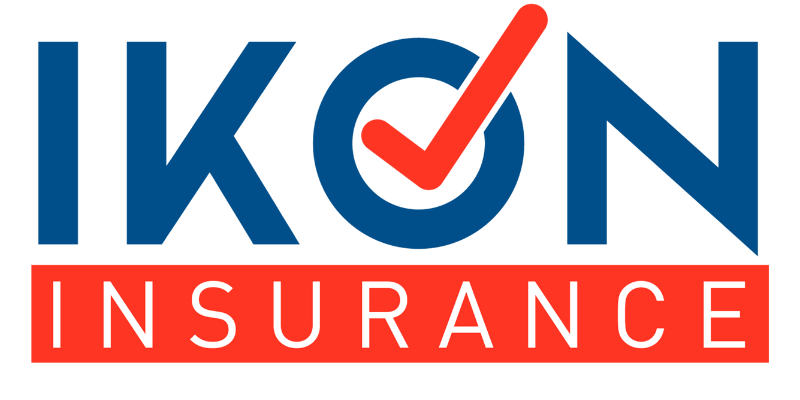Why does a car insurance take into account the driving record?
When applying for car insurance in the United States, one of the most important factors that insurance companies review is the driving record or driving history. This document reflects a driver’s experience, including accidents, traffic violations, fines and other relevant incidents. But why do car insurers attach so much importance to the driving record? Below, we explain the key reasons and how it affects your rates.
What is the driving record?
The driving record, also known as driving history, is a report issued by the Department of Motor Vehicles (DMV) in each state. This report includes information on:
- Traffic accidents in which you have been involved.
- Traffic fines and tickets, such as speeding or reckless driving.
- DUI (driving under the influence of alcohol or drugs).
- Points accumulated on the license due to infractions.
- Suspensions or revocations of your driver’s license.
In short, it is an X-ray of your driving behavior.
Why does the driving record affect your insurance?
Car insurance companies use your driving record to assess the risk you pose as a driver. The riskier you are to them, the more likely you are to file claims in the future. Here are some key points that explain their importance:
1. Risk assessment
Car insurance is based on a simple principle: insurers want to minimize the risk of having to pay a claim. If you have a clean record, i.e., no accidents or violations, the insurer will consider you a low-risk driver, which could translate into lower rates. Conversely, if you have several tickets or accidents on your record, you will be considered a high-risk driver, and your premium is likely to be much higher.
2. Probability of claims
Studies show that drivers with a negative driving record are more likely to be involved in future accidents or violate traffic laws. Insurers adjust your rates based on this likelihood. If you have had multiple violations, such as speeding or accidents, this suggests that you may need to file more claims in the future.
3. Impact on tariffs
A clean driving record will generally qualify you for better rates on your car insurance. On the other hand, a troubled driving record can raise your premiums significantly. In some extreme cases, companies may even deny you coverage or require you to take out a special policy, such as an SR-22, which is usually much more expensive.
4. Accumulation of Points
Many states use a point system on driver’s licenses. Each violation you commit adds points to your license, and if you accumulate too many in a short period of time, you could face license suspension or revocation. Insurers review this point system when calculating your premiums. The more points you have, the more risk you represent to them, resulting in higher costs.
5. DUI Fines
DUI (driving under the influence of alcohol or drugs) related offenses are considered the most serious on your driving record. If you have a DUI on your record, your car insurance will skyrocket. Many insurance companies view these drivers as extremely risky and, in some cases, may refuse to offer coverage.
How does a bad driving record affect my car insurance?
Having a negative driving record can have several consequences, including:
- Higher rates: A driver with a negative record can pay up to 50% more for car insurance compared to someone with a clean record.
- Denial of Coverage: Some insurers do not accept drivers with multiple violations or serious accidents on their record.
- SR-22: In some cases, an SR-22 is required, which is a certificate showing that you have the minimum coverage required by law. This type of policy is usually much more expensive.
- Loss of Discounts: Drivers with clean records often qualify for discounts such as “good driver” discounts, but those with a poor record lose access to these rate reductions.
How to improve your driving record
If your driving record is not the best, there are steps you can take to improve it and reduce your insurance rates:
1. Avoid traffic violations
Traffic violations, such as speeding, failing to obey signs or distracted driving, are one of the most common ways to blemish your record. Each violation usually adds points to your license, and accumulating too many points can increase your insurance costs or even lead to the suspension of your license.
- Respect speed limits.
- Obey traffic signals and traffic lights.
- Do not use the cell phone while driving.
- Follow the rules for changing lanes and signal correctly.
2. Avoid driving under the influence
Driving under the influence of alcohol or drugs is one of the most serious offenses. Fines and penalties are severe, and insurers often cancel your policy or significantly increase your rates if you have a DUI (Driving Under the Influence) on your record.
- Designate a driver if you plan to drink.
- Use an alternative transportation service such as Uber or Lyft.
3. Keep your vehicle in good condition
Proper maintenance of your vehicle reduces the likelihood of accidents due to mechanical failure. Things like bad brakes or burned out lights can lead to dangerous situations and, in some cases, fines.
- Check brakes regularly.
- Change the oil and check the lights.
- Keep tires properly inflated.
4. Be cautious in difficult conditions
Bad weather, such as rain or snow, increases the likelihood of accidents. Driving cautiously in these conditions can prevent incidents that damage your record.
- Drive slower in bad weather.
- Maintain a greater distance between vehicles.
- Use appropriate lights in poor visibility conditions.
5. Avoid accidents and claims
Even accidents where you are not at fault can affect your insurance policy. Driving defensively and being alert reduces the possibility of collisions.
- Keep an eye out for other drivers.
- Avoid distractions while driving.
- Do not follow other vehicles closely.
6. Attend defensive driving courses
Some states and insurers offer discounts for completing defensive driving courses. In addition, these courses can help you reduce points on your license if you have committed a violation.
- Enroll in a defensive driving course.
- Ask your insurance company if they offer discounts for these courses.
7. Complies with Parking Laws
Parking violations are not as serious as traffic violations, but they can show up on your record if you accumulate many unpaid parking tickets. Be sure to park in permitted places and respect parking times.
8. Be honest when applying for insurance
Lying about your driving record when applying for a car insurance policy can have serious consequences. If the insurer discovers inconsistencies, it may cancel your policy or refuse to pay a claim.
9. Dispute errors in your driving record
Your driving record may contain errors. If you detect a violation that you did not commit, you can fight it with the Department of Motor Vehicles (DMV) or the appropriate agency in your state.
- Request a copy of your driving record on a regular basis.
- Dispute any errors with the DMV.
10. Avoid driving under stressful conditions
Driving when you are tired or stressed can increase the risk of accidents or violations. If you do not feel fit to drive, it is better to wait or look for alternatives.
How does an insurer check the driving record, or is it something that must be requested elsewhere?
Car insurance in the United States verifies your driving record directly through the Department of Motor Vehicles (DMV) in the state where you reside. You don’t need to request it or send it to the insurance company; they have access to this information as part of their risk assessment when you apply for a policy. Here’s how this process works and what to do if you want to check your history on your own:
How do insurers check your driving record?
- Direct Access to DMV
When you apply for a car insurance policy, the insurance company can access your driving record by requesting a copy from your state DMV. They check your record to see if you have had any accidents, traffic violations, speeding tickets or any other relevant incidents. - Use for Rate Calculation
Your driving record is one of the key factors insurers use to calculate your rates. If you have a clean record, with few or no incidents, your premium will be lower. But if you have recent violations or accidents, you can expect an increase in your costs. - Check Frequency
Insurers not only check your driving record when you apply for a new policy. They may also check it regularly, especially when you renew your insurance. If you have accumulated violations or accidents, this can impact the cost of your policy at renewal.
Do I have to request my driving record?
You do not need to request your driving record for the insurance company to review it. However, if you want to review your own record, you can request a copy directly from the DMV or through online services. This is useful if you want to know what information the insurance company sees or to check for errors.
How to request your driving record
If you want to obtain your driving record, you can do so by following these steps:
- Visit the DMV website
Most states allow you to request a copy online through the DMV website. In some cases, you can receive the document digitally, while in others you will have to wait for it to be mailed to you. - Pay a fee
Depending on the state, there may be a small fee for requesting your driving record. Costs vary, but generally range from $5 to $20. - Review your record
Once you receive your record, review it to make sure all the information is correct. If you find errors, you can dispute them with the DMV.

